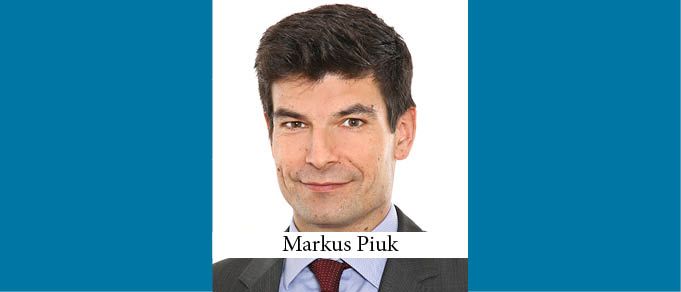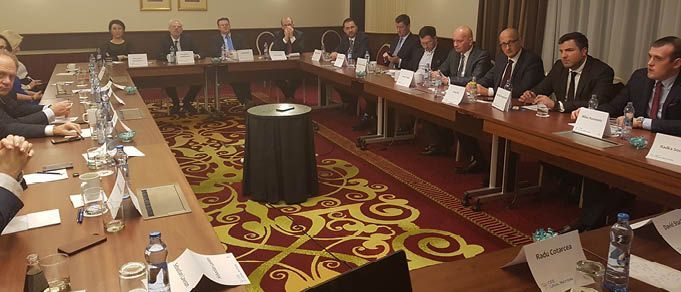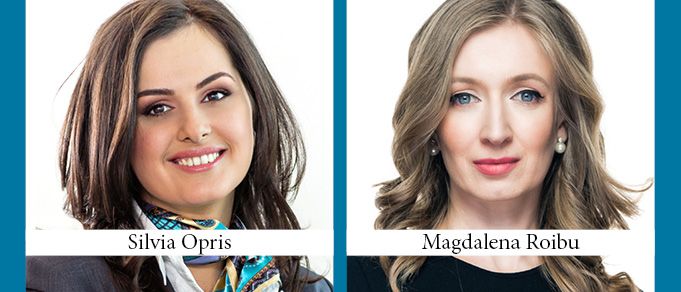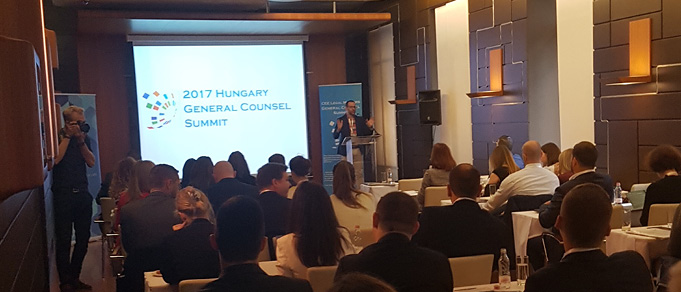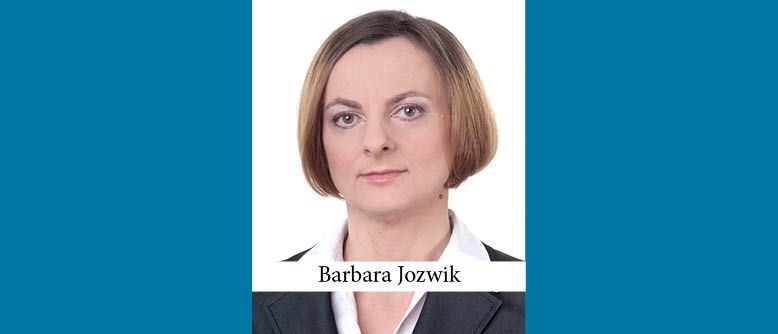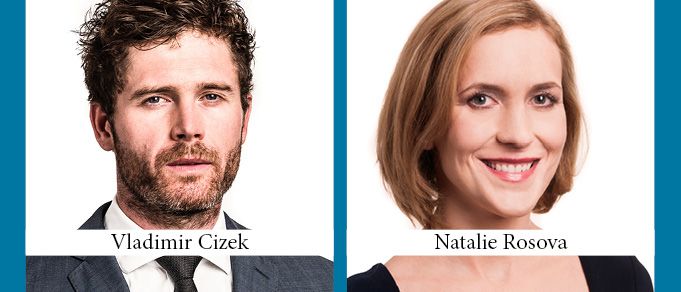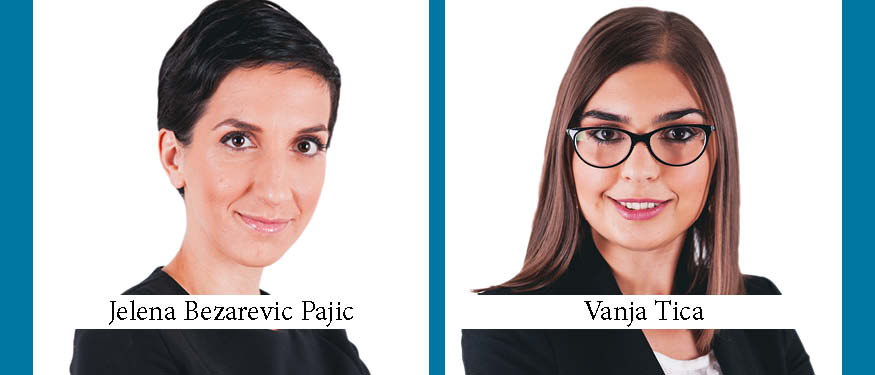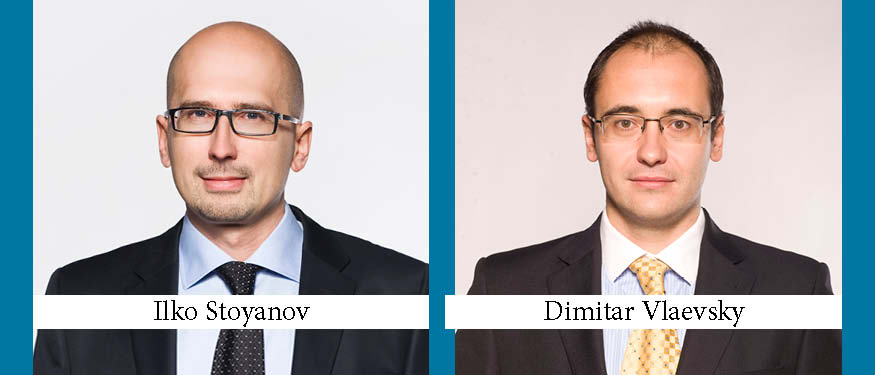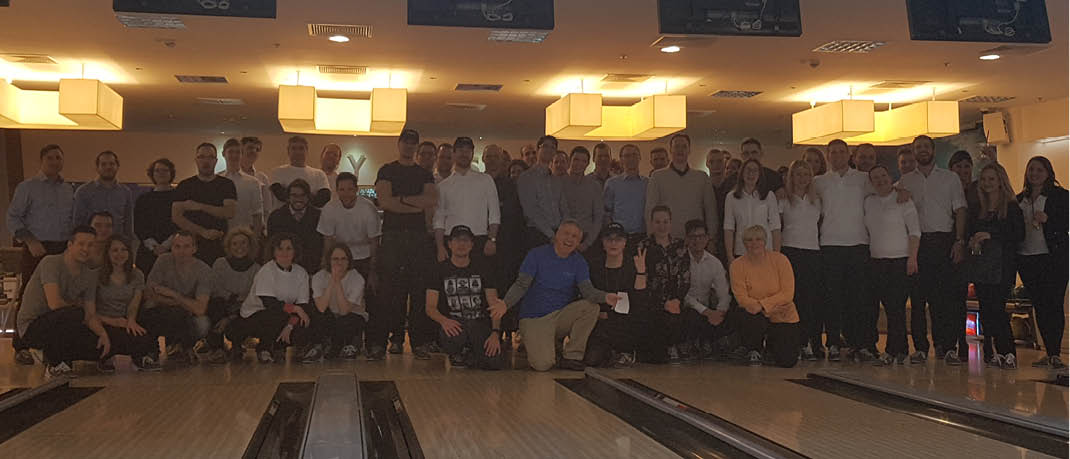Although Romania claims the highest GDP growth rate in Europe and a low unemployment rate, all is not rosy in the seventh most populous member state of the European Union, and prominent lawyers in the country admit to profound dissatisfaction with the country’s leadership and concern about its long-term prospects.
The Corner Office: Your Favorite Question
In The Corner Office we invite Managing Partners at law firms across the region to share information about their unique roles. The question this time around: What is your favorite question when interviewing a job applicant, and why?
Guest Editorial: Big Wheel Keep on Turnin’
Traveling the region on legal business I sense a lot of buzz surrounding law firms in CEE. Headline transactions are numerous and deal-pipelines appear to be well-fueled. With the tailwind of news about solid economic growth in the European Union there are good chances that this trend will last. The future for law firms in the region looks brighter than ever. But there are also challenges ahead of us as the legal industry, in CEE as everywhere else, is headed for some turbulent times.
Experts Gather in Prague for CEE Legal Matters’ Annual Year-End Round Table
On Thursday, November 30th, leading legal practitioners from across Central and Eastern Europe gathered in Prague to help CEE Legal Matters celebrate its fourth successful year as the leading chronicle of the legal industry in the region, participating in an expert Round Table conversation about the year just concluded and enjoying an evening of dinner, drinks, and bonhomie.
When Public Meets Private: Offenses Committed by Members of Arbitral Tribunals or in Connection Thereto
MOTTO: No judge writes on a wholly clean slate.
2017 Hungary GC Summit Off to a Fast Start
The 2017 Hungary GC Summit is underway at the Boscolo Budapest Hotel in the Hungarian capital.
Schoenherr's Daniel Gera's Thoughts on the Upcoming Hungary GC Summit
As the CEE Legal Matters team prepares for the upcoming Hungary General Counsel Summit, we sat down with Daniel Gera of Schoenherr to learn about the panel discussion he will be leading titled "Preparing for the General Data Protection Regulation - Challenge or Opportunity."
The Corner Office: The Least Favorite Thing
In The Corner Office, we invite Senior and Managing Partners at law firms from across the region to share information about their careers, management styles, and strategies. For this issue, we asked them to describe their least favorite part of their jobs.
Temporary Employees to Benefit from Improved Regulations
The Polish Act on Temporary Employees dated July 9, 2003 (Journal of Laws of 2003, No. 166, item 1608, as amended) has been in force since 2004. The Act contains many flaws, however, resulting in the unequal treatment of temporary employees compared to employees hired directly under employment agreements.
Basically Bullish: The Czech Revel in Good Times
Czech lawyers, not known for ebullience, are nonetheless finding it hard to keep the smiles off their faces. After a decade of disappointment and struggle, if the Managing Partners at Czech firms are to be believed, the last remnants of the global financial crisis have dissipated and business is booming. As spring rolls through Central Europe, the sunshine is both meteorological and metaphoric. Prague is basking in the warmth.
New Regulatory Framework for Payment Services in the Czech Republic
As the Directive of the European Parliament and of the Council on Payment Services in the Internal Market (PSDII) introduces a number of changes to existing Czech legislation, a completely new Payment Services Act regulating the provision of payment services will be adopted in the Czech Republic. PSDII should be implemented by January 13, 2018.
Paving the Way: Schoenherr’s Pioneering Payment Services Practice
As consumers conduct an ever-increasing amount of their shopping and banking on-line, the digitalization revolution is having a significant effect on both industries, and payment service providers – companies offering online services allowing merchants to accept electronic payments by, among other forms, credit cards or bank-based payments such as direct debit, bank transfer, and real-time bank transfer based on online banking – are working with both merchants and banks to facilitate their operations.
When Arbitration Meets Insolvency in Montenegro – Can They Coexist?
Even at first blush, it is apparent that arbitration and insolvency make strange bedfellows.
Amendment to Bulgarian Legislation Facilitates Mass Claims
In November, the Bulgarian Parliament began debating the amendments to the Competition Protection Act (CPA) with respect to the implementation of the EU’s Directive 2014/104/EE on Damages Actions for Antitrust Infringements (the “Directive”). Interestingly, the main aim of the Directive and the proposed amendments to the CPA – facilitating the private enforcement of infringements of competition law – coincides with what is probably the biggest cartel investigation in the history of the Bulgarian Commission for Competition Protection (CCP).
Building Blocks: The Rise of the Regional Austrian Firm Across CEE
“Vienna is the gate to Eastern Europe” – Niki Lauda
The Corner Office: Your First Client
In The Corner Office, we invite Managing Partners at law firms from across the region to share information about their careers, management styles, and strategies. For this issue, we asked them to describe the first major deal or client matter they generated themselves, and how they did it.
Strike! Law Firms Compete in First-Ever CEELM Budapest Law Firm Bowling Challenge
On the evening of February 1, 2017, CEE Legal Matters hosted the first ever CEELM Budapest Law Firm Bowling Challenge: A competition of four-person teams from leading law firms in Hungary, with all proceeds to go to the winner’s charity of choice. A total of 13 law firms competed for the impressive trophy – and the glory that goes along with it.
Asset Yield: European Real Estate Event
CEE Legal Matters is excited to attend the first in its series of Asset Yield panel discussions, hosted by Richards Kibbe & Orbe in London this Thursday. In preparation for the event, we sat down with one of the guest panelists at the event, Pawel Halwa, the Managing Partner of the Schoenherr Warsaw office.



